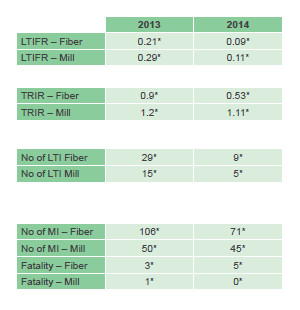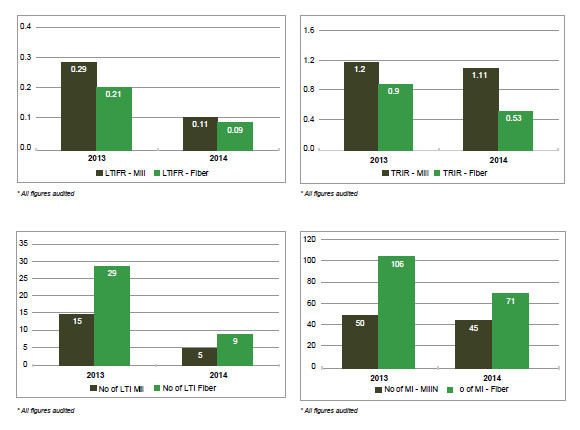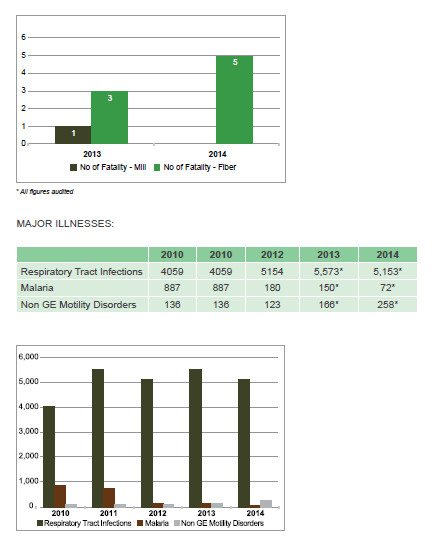APRIL Group believes in being a responsible employer with workplace safety as our top priority. Our principle is zero tolerance for unsafe behavior applies to all employees and contactors.
We implement stringent preventive measures with Hazard Identification, Risk Assessments and Determining Control (HIRADC) system in our Occupational Health and Safety Management Systems (OHSMS) that covers hazard identification, estimation of probability of occurrence and consequences, risk categorization, determination of sufficiency of existing plans and controls and identification of requirements for equipment, training and controls.
Our Health and Safety (OHS) Program consists of four major elements:
- Management commitment and employees’ involvement: management safety committee and KAIZEN initiatives.
- Workplace analysis: General safety inspections, non-conformity report, Job Safety Analysis (JSA), emergency drill and safety audits.
- Hazard prevention and control: OHS promotion and campaign, safe work procedures and 5 Behavioral Based Safety (BBS) implementation (think through task, evaluate exposure, risk assessment, precautionary action, executing job safely).
- Fire Occupational Health and Safety (OHS) training and education: training and certification (internal and external).
APRIL Group’s plantation and mill operations were certified under the Health & Safety Management System OHSAS 18001 requiring a three yearly audit. We are also reviewed under the Indonesia’s principle of Occupational Health and Safety Management System or Sistem Management Keselamantan Kesehatan Kerja (SMK3).
In April 2013, we were awarded the Golden Flag and Golden Certificate under SMK3, signifying our implementation of the 166 criteria within the 12 elements of the SMK3 system (representing 90% plus implementation).
OCCUPATIONAL SAFETY
Despite of our focus on health and safety, nine people in the forestry and mill operations lost their lives during the reporting period of 2013 to 2014.
Analysis of these incidents showed that these fatalities were attributed to falling trees at harvesting, traffic incidents and non-conformance to safety standards. Forestry operations are a dynamic and widespread work environment where plantation contractors live and work in distant, isolated locations with regular turnover. The loss of even one life is completely unacceptable and we have implemented a series of measures to address the causes of these incidents to ensure that the recurring risk is reduced.
IMPROVEMENT MEASURES:
- Ensure proper training and briefing to all employees, new hires and contract workers on OHS principles and work procedures for their specific tasks.
- Strengthen inspection programs to prevent and correct unsafe behavior such as safety observation program, non-conformance report and violation ticket.
- Conduct regular meetings on OHS issues with top management and department heads.


